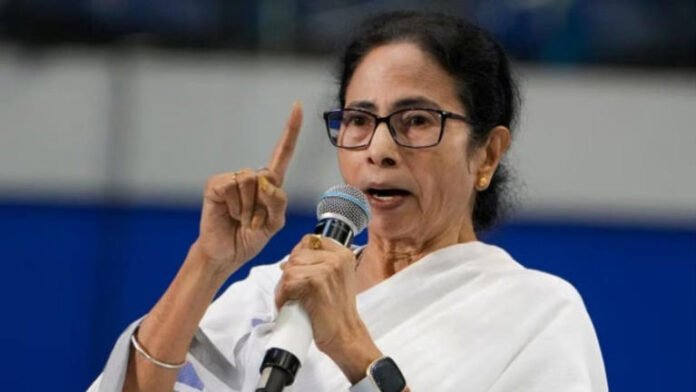In the wake of ongoing protests and debates surrounding the implementation of the Waqf (Board) law in West Bengal, Chief Minister Mamata Banerjee has weighed in on the issue, stating that while the public has the right to protest, it is crucial that no one takes the law into their own hands. Banerjee’s statement comes amid escalating tensions over the state’s recent move to strengthen the role of the Waqf Board, which has sparked both support and opposition from various sections of society.
Waqf Law in Focus
The Waqf law primarily deals with the administration of properties under Waqf – the Islamic religious endowment. It governs the management and utilization of properties donated to religious institutions for the welfare of the Muslim community. The state government’s recent moves to bolster the powers of the Waqf Board have led to concerns among some quarters about potential misuse of such properties and the governance structure.
The state government, led by Mamata Banerjee, has introduced legislative reforms to streamline the functioning of the Waqf Board, focusing on better management and accountability of Waqf properties. While this is seen by the government as a step toward improving transparency and ensuring that the properties benefit the community, critics argue that it could lead to mismanagement and a consolidation of political power over religious affairs.
Right to Protest: A Democratic Privilege
Amid the heated debate, Mamata Banerjee addressed the protests, emphasizing that citizens have every right to express their opinions and dissent. She clarified that protest is an integral part of democratic values, but stressed that it should be done within the boundaries of law and order. The Chief Minister remarked, “People have the right to protest and express their views, but they cannot take the law into their hands. Every protest should respect the rule of law.”
Banerjee’s comments came after several demonstrations and rallies by various groups, including religious organizations, political parties, and community leaders, who have either supported or criticized the law. The protests have been marked by rallies, sit-ins, and public speeches, with differing views on the effectiveness and implications of the law on Waqf management. Some argue that it is a much-needed step to bring transparency, while others claim it could result in the politicization of religious institutions.
Government’s Stance on Law and Order
While acknowledging the right to protest, Mamata Banerjee reiterated her commitment to maintaining law and order in the state. She urged protestors to exercise their right peacefully and avoid any form of violence or disruption. “We respect every individual’s right to protest, but we will not tolerate any attempts to disrupt peace, harm public property, or incite violence,” she said.
Her statement came in the backdrop of incidents where protests have turned violent, resulting in damage to public property and confrontations with law enforcement authorities. Banerjee, who has a history of navigating protests and unrest in the state, pointed out that the government would not allow the rule of law to be compromised under any circumstances.
The Chief Minister’s stance indicates a clear demarcation between peaceful democratic dissent and unlawful actions that could harm the public good. She assured the public that while protests would not be curbed, the government would take stern action against any illegal activities that could lead to chaos.
Concerns over Waqf Board Law
The ongoing controversy surrounding the Waqf law is rooted in concerns about its implications for the management of religious properties and the role of the state government in overseeing the Waqf Board. Critics argue that increasing the government’s influence over Waqf properties could result in political interference in religious affairs. They also worry about potential mismanagement and the lack of clarity on how the funds and properties will be utilized.
Supporters of the law, however, argue that the strengthening of the Waqf Board is necessary to ensure the efficient management of Waqf properties, which are often misused or underutilized. They believe that greater accountability will benefit the Muslim community by ensuring that the assets are used for their intended welfare purposes.
Balancing Secularism and Religious Institutions
Mamata Banerjee’s government has always advocated for a secular approach to governance, one that respects all religions and communities equally. The Waqf Board law, despite being contentious, is viewed as part of the government’s efforts to maintain this secular approach while ensuring that religious institutions operate within the legal framework.
The Chief Minister’s statement highlights the challenge of balancing the interests of religious institutions with the need for transparent and accountable governance. By calling for peaceful protests within the confines of the law, Banerjee is urging all stakeholders to engage in dialogue and discussion rather than resorting to violence.
Mamata Banerjee’s comments on the Waqf law reflect a broader vision for upholding democratic rights while maintaining law and order. As West Bengal continues to grapple with the complexities of the Waqf law, the Chief Minister’s message serves as a reminder that protests, while legitimate, must be conducted responsibly and peacefully. By advocating for the rule of law, Banerjee underscores the importance of safeguarding both democratic expression and public order in the face of ongoing controversies.

